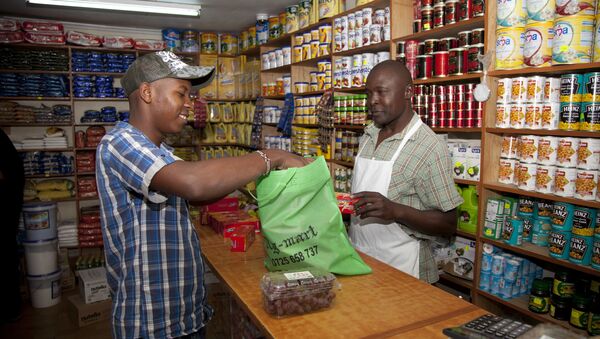Those who break the law could face a maximum of $38,000 in fines or prison sentences of up to four years. The bill is seen as a triumph for Kenyan environmentalists and their supporters, who have attempted to get the law passed three times over the last 10 years.
More than 40 other countries, including China, France, Rwanda, Mauritania, Eritrea and Italy, have enacted similar bans or taxes on single use plastic bags, the BBC reported.
According to Kenyan Environment Minister Judy Wakhungu, "Plastic bags now constitute the biggest challenge to solid waste management in Kenya. This has become our environmental nightmare that we must defeat by all means."
An expert with the UN Environment Programme in Kenya, Habib El-Habr, also commented on the direness of the environmental situation. "If we continue like this, by 2050, we will have more plastic in the ocean than fish," he said.
According to El-Habr, plastic bags take between 500 to 1,000 years to disintegrate, and animals often graze on the rubbish. In Nairobi's slaughterhouses, as many as 20 polythene bags have been removed from a single cow's stomach.
"This is something we didn't get 10 years ago but now it's almost on a daily basis," Kenyan vet Mbuthi Kinyanjui said, as he watched plastic bags being removed from bloody cow remains, Channel NewsAsia reported.
Plastic bag manufacturers have criticized the new ban, saying that 80,000 jobs could be lost and 176 manufacturers would have to shut down as a result, especially since Kenya exports its plastic bags to its neighbors.
Samuel Matonda, a spokesperson for the Kenya Association of Manufacturers, commented on the ban's effect on the country's economy. "The knock-on effects will be very severe. It will even affect the women who sell vegetables in the market — how will their customers carry their shopping home?"
However, the High Court rejected the manufacturer association's challenge of the ban on Friday, ruling that the environmental concerns outweigh the commercial ones.
For now, the new Kenyan law will mainly focus on punishing manufacturers and suppliers. Although civilians cannot yet be fined or arrested for carrying plastic bags, their plastic bags will be confiscated.



